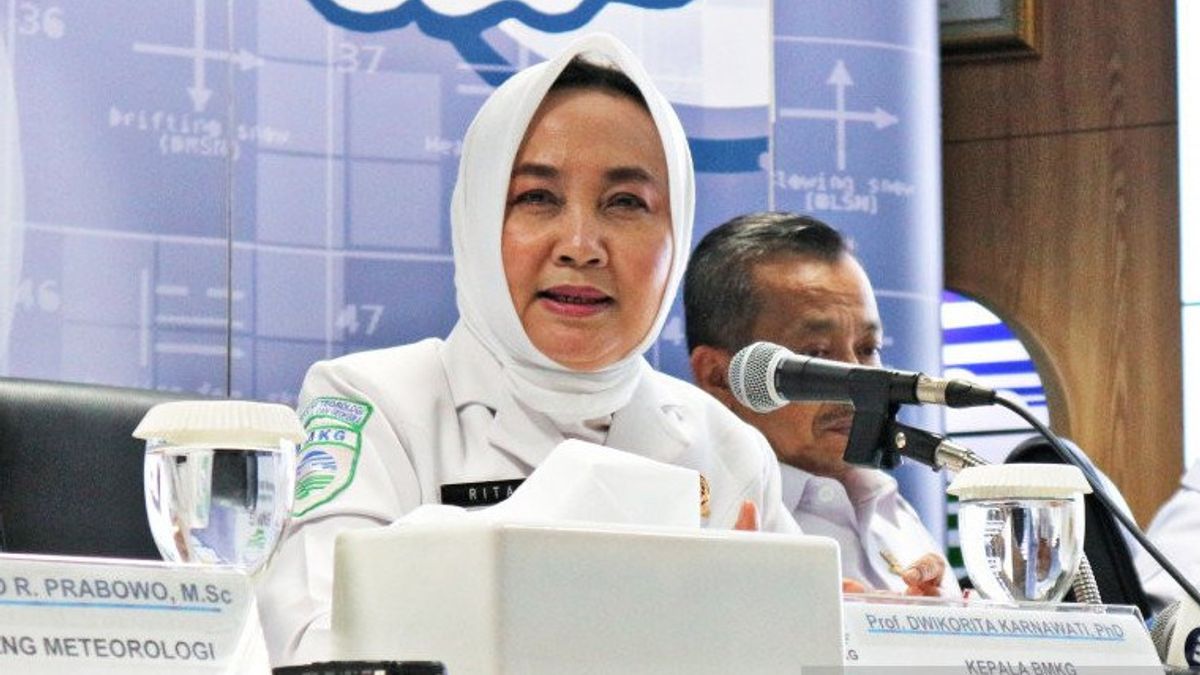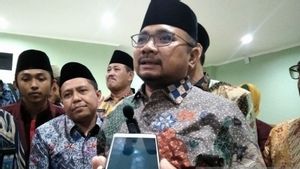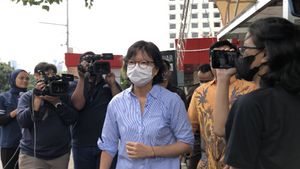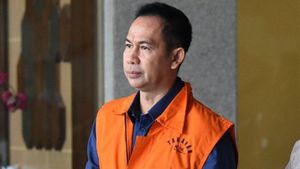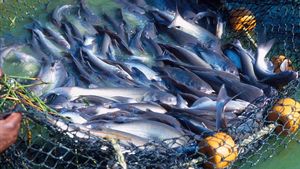JAKARTA - The Meteorology, Climatology and Geophysics Agency (BMKG) initiated the formation of the Multi Hazard Coordination Center in ASEAN countries.
The idea raised by BMKG at the AEIC Strategic Meeting Forum online on the agenda of the 42nd ASEAN Summit is a response to the increasingly complex multi-hazard phenomenon that also has the potential to occur in the ASEAN region.
"Not only Indonesia, all countries in Southeast Asia are also facing the same situation where disasters that hit so many and at the same time. The frequency of events is getting more frequent with increasing intensity and the duration is getting longer," said Head of BMKG Dwikorita Karnawati as reported by ANTARA, Thursday, May 11.
He said BMKG as the institution that operates the ASEAN Earthquake Information Center (AEIC) sees the need to formulate strategic plans in the region to anticipate various disaster threats.
Dwikorita added that the similarity of background complexity of tectonic system and geographical location in the ASEAN region is very likely to make the entire ASEAN country has multi-hazard potential, where geological disasters coincide with hydrometeorological disasters or geo-Hydrometeorological disasters.
"This issue must receive the attention of all ASEAN heads of state, because from experience that has occurred in complex earthquakes and tsunamis and caused many casualties, it actually occurs when the early warning system and even Standard Operating Procedures (SOP) have not been prepared, as a result we cannot minimize the impact of the disaster," he said.
Dwikorita emphasized that the establishment of a coordination entity related to multi-hazard ASEAN areas is very urgent to carry out along with its concepts and strategies, because no one can know when the disaster occurred.
また読む:
This entity, he continued, is a form of mitigation with countries in the Southeast Asian Region that have many similarities.
"The earthquake that occurred in Turkey some time ago is a warning to all countries that are prone to such disasters can occur at any time with a worse impact if comprehensive mitigation efforts are not carried out immediately," he said.
Meanwhile, ITB expert and Chair of the Indonesian Disaster Expert Association, Harkunti, said ASEAN countries through AEIC are expected to implement two goals from the UN Decade Ocean Science, namely where by 2030, 100 percent of communities in tsunami risk areas must have preparedness capacity and resilience to tsunamis while ensuring an early warning that is active.
"So, both early warning and can be implemented properly," he said.
The meeting was attended by Representatives of Malaysia, Timor Leste, Myanmar, and Philipina, as well as the Ministry of Foreign Affairs, the National Disaster Management Agency (BNPB), the National Research and Innovation Agency (BRIN), the Indonesian Disaster Expert Association (IABI), IOTIC-UNESCO, disaster experts from ITB, the University of Indonesia (UI), and Gadjah Mada University (UGM).
The English, Chinese, Japanese, Arabic, and French versions are automatically generated by the AI. So there may still be inaccuracies in translating, please always see Indonesian as our main language. (system supported by DigitalSiber.id)
